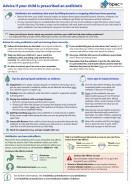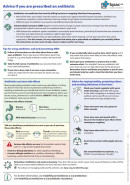Minocycline is an antibiotic used for skin infections such as acne. In New Zealand, minocycline is available as tablets (50mg) and capsules (100mg). It is only partially funded so you will have to pay a part-charge when collecting your minocycline from the pharmacy.
Love our website? We do too. Did you know we're a charity? Donate now to help us keep it free for everyone in Aotearoa New Zealand.
Minocycline
Sounds like 'min-o-sye-kleen'
Key points about minocycline
- Minocycline is an antibiotic used to treat different infections caused by bacteria.
- Minocycline is also called Minomycin® and Minotabs®.
- Find out how to take it safely and possible side effects.

- The usual dose of minocycline is 50 or 100 mg once or twice a day.
- Your doctor will advise you how long to take minocycline for.
- The pharmacy label on your medicine will tell you how much to take, how often to take it and any special instructions.
- Note: minocycline is not usually given to children younger than 12 years because it can affect growing teeth and bones.
- Take minocycline with food and a large glass of water.
- Do not lie down for at least 30 minutes after taking minocycline or do not take it just before bed.
- If you forget to take your dose, take it as soon as you remember. But, if it is nearly time for your next dose, just take it at the right time; do not take double the dose.
- You can drink alcohol while taking minocycline.
Sun protection
Minocycline can make your skin more sensitive to the sun. You can get a burning, tingling feeling on your skin when you are in the sun, or you may notice a darker tan or redness. When outside, protect your skin and eyes by using a good sunscreen (at least SPF30+), a sunhat, long-sleeved tops and full-length bottoms, and wearing sunglasses.
Taking other medicines
Taking some medicines such as antacids and iron preparations at the same time as minocycline can reduce its effect in fighting infection. Do not take indigestion remedies, iron or calcium preparations within 2 hours of taking minocycline.
- Are you pregnant, planning a pregnancy or breastfeeding?
- Do you have liver or kidney problems?
- Do you have lupus or myasthenia gravis?
- Are taking any other medicines? This includes any medicines you are taking which you can buy without a prescription, as well as herbal and complementary medicines.
If so, it’s important that you tell your doctor or pharmacist before you start minocycline. Sometimes a medicine isn’t suitable for a person with certain conditions, or it can only be used with extra care.
Like all medicines, minocycline can cause side effects, although not everyone gets them. Often side effects improve as your body gets used to the new medicine.
| Side effects | What should I do? |
|---|---|
|
|
|
|
|
|
|
|
|
|
|
|
|
|
| Read more about medicines and side effects and reporting a reaction you think might be a side effect. | |
Minocycline interacts with some medicines and herbal supplements, so check with your doctor or pharmacist before starting minocycline.
Resources
5 questions to ask about your medications(external link) Health Quality and Safety Commission, NZ, 2019 English(external link), te reo Māori(external link)
References
- Minocycline(external link) New Zealand Formulary
- Doxycycline and minocycline(external link) SafeRx, Waitematā DHB
Brochures

Advice if your child is prescribed an antibiotic
BPAC, NZ, 2024

Medicines and side effects
Healthify He Puna Waiora, NZ, 2024
Credits: Sandra Ponen, Pharmacist, Healthify He Puna Waiora. Healthify is brought to you by Health Navigator Charitable Trust.
Reviewed by: Angela Lambie, Pharmacist, Auckland
Last reviewed:
Page last updated:






